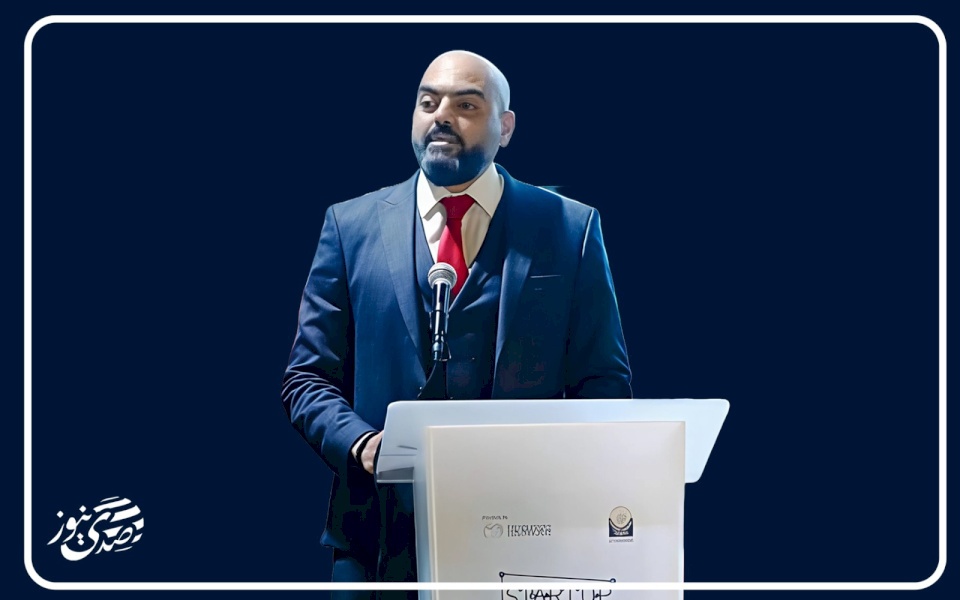
Farcin: Diplomacy That Reflects the Pulse of Palestine
I was happy and grateful as I listened to Farcin Agabkian in the government operations room for emergency interventions in the southern provinces, as she informed members of the diplomatic corps about the tireless efforts being made to aid our Palestinian people. Her voice was not merely a formal presentation, but a resonance of collective pain, pulsating with truth and commitment; a brave female voice representing the women of Tulkarm, Gaza, Rafah, Jenin, Khan Younis, Nablus, and Jerusalem....
Farcin spoke with a responsible voice and the heart of a caring mother about the necessity of stopping the savage aggression against our people, and about the urgent need to deliver humanitarian aid to Gaza, in light of the genocide and systematic starvation that more than two million Palestinians are facing, living in the worst forms of suffering.
Agabkian affirmed that the occupation is using starvation as a weapon of war, and that this requires international efforts to stop the tragedy and address the catastrophic reality that years of occupation have left behind, touching on the importance of the international community fulfilling its legal and humanitarian responsibilities regarding the crimes committed against our people, and the necessity of implementing international legitimacy decisions, as stated in the advisory opinion of the International Court of Justice adopted by the United Nations General Assembly.
Farcin did not settle for a humanitarian call; instead, she clearly demanded accountability for the occupation’s crimes, emphasizing that the absence of accountability is what keeps the crime of genocide ongoing and threatens the prospects for peace and a two-state solution. In the face of political stagnation, she stressed that the complete recognition of the State of Palestine at the United Nations represents a pivotal step in supporting the two-state vision and embodying the sovereignty of the State of Palestine over its land.
In this complex political context, the appointment of Farcin Ohannes Vartan Agabkian as Minister of State for Foreign Affairs and Expatriates carries a national, humanitarian, and international dimension. She is the first Palestinian woman to hold this position, not only locally but in an Arab context where women are often underrepresented in diplomatic decision-making roles. While 18 foreign ministers gathered at an exceptional summit in Canada, uniting for peace, equality, and women’s empowerment, Arab representation was entirely absent due to the limited number of Arab women in such positions. Farcin’s appointment today could be the first step towards breaking this Arab absence, bringing the Palestinian female voice into the heart of the international diplomatic space.
This appointment comes at a symbolic and critical moment: the world is experiencing increasing waves of conflict, and Palestine is undergoing one of the most complex phases in its history, amid the ongoing aggression against Gaza and political paralysis in the national horizon. Therefore, appointing a woman to this position not only serves as a recognition of Palestinian women, but also conveys a political and moral message that modern diplomacy must be more inclusive and open to civil experience and pluralistic thinking.
In this context, observers note that the United Nations itself has begun to witness similar transformations, with the election of Annalena Baerbock, the former German Foreign Minister, as President of the 80th session of the General Assembly, making her the fifth woman to hold this high UN position since the organization’s founding. Baerbock emphasized in her speech that peace and stability cannot be achieved without the meaningful participation of women in decision-making roles.
Farcin is not a newcomer to the public field. She holds a PhD from the University of Pittsburgh in educational policy and has held leadership positions in academic, cultural, and human rights fields, including as the General Commissioner of the Independent Commission for Human Rights, Director of the "Jerusalem Capital of Arab Culture" project, and was the Planning Director at Dar Al-Kalima University. This diverse background provides her with a holistic perspective on practicing diplomacy, based on values, justice, and plurality, which Palestinian political work needs today more than ever.
The presence of such a significant Palestinian woman in foreign affairs is a testament to the capability of Palestinians, both men and women, to represent themselves with strength and responsibility. More importantly, Farcin’s appointment sends a message to the world that Palestinian women do not seek pity or symbolism, but step forward to lead, participate, and shape policy with the spirit of a free person.
In a world that demands more justice and inclusivity, Farcin Agabkian represents a mature embodiment of a new Palestinian political transformation, where competence, meaning, and justice are the true criteria for selecting representatives of the people. She is not only the first Minister of State for Foreign Affairs but is also a face of promising Palestine and a voice of freedom in a time of oppression and siege.

Huckabee's Statements Reveal the Falsehood of Trump's Peace and Reinforce Religious Confli...

Licensed Occupation by Law

Whoever Does Not Plant Hope, Plants Departure...

Between "Here is Jerusalem" and "Here is Gaza" ... The Voice of a Nation and the Steadfast...

While some count the boos, Palestinians count their martyrs.. Paradoxes of the internation...

When the Palestinian Issue is Reduced to Gaza Management

Legally Licensed Occupation

